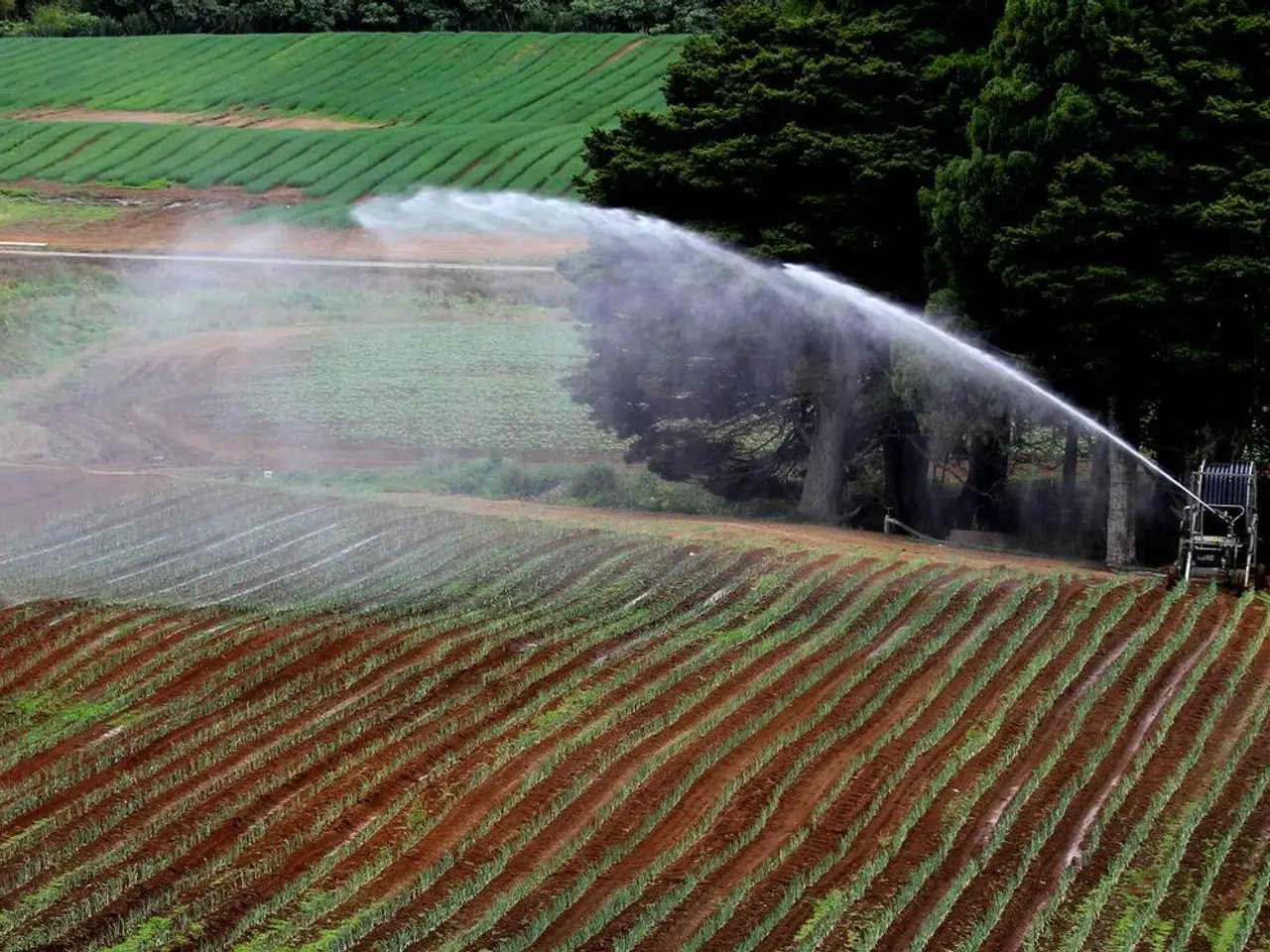Benefits and Drawbacks of Soil-less Cultivation: Comprehensive Examination
Hydroponic farming, a method of growing plants without soil, is gaining popularity due to its numerous environmental advantages. This innovative approach to agriculture delivers nutrients directly to plants, resulting in faster growth, higher yields, and earlier harvests.
Fruits like strawberries and vegetables such as lettuce, tomatoes, and herbs are commonly grown hydroponically. Instead of soil, plants are grown in a nutrient-rich water solution, which reduces water usage significantly compared to traditional farming methods. Hydroponics uses 30–95% less water, contrasting with traditional farming's high water loss through evaporation and runoff.
The closed-loop system of hydroponics also minimises chemical runoff and associated pollution. Hydroponic farming avoids synthetic fertilizers and pesticides, resulting in up to a 90% reduction in chemical runoff. This, in turn, helps preserve soil health and prevent soil degradation, a critical issue in conventional agriculture.
Moreover, hydroponic systems are often conducted indoors or in controlled environments, allowing year-round production with higher predictability. This reduces crop failure risks and the need for long-distance transportation, thus lowering overall carbon footprints.
However, hydroponic systems require electricity for maintaining controlled conditions such as lighting and climate control. Power outages can harm crops or slow their growth. Setting up a hydroponic system can be initially expensive due to the cost of equipment and the need for specific skills.
Hydroponic tools, such as plastic pipes, containers, and artificial lights, can lead to environmental pollution if not managed properly. However, hydroponic farming produces cleaner, chemical-free food, reducing pesticide damage to local wildlife and the environment.
Hydroponic farming also allows for more efficient use of space, particularly in cities, through vertical farming methods. Systems can be set up in small greenhouses, on rooftops, or in warehouses for urban farming. Plants in hydroponics can thrive in various substrates such as perlite, coconut coir, or gravel.
While hydroponics offers numerous benefits, it does have its challenges. Growing plants in a closed system can allow diseases to spread more quickly and inflict damage on multiple plants simultaneously. Hydroponic farming requires more technical knowledge compared to traditional farming, including mixing and monitoring nutrition solutions, maintaining stable pH levels, controlling water temperature, and resolving system issues.
In summary, hydroponic farming presents a promising solution for sustainable food production. With careful management, it can provide high yields while reducing water usage, chemical pollution, and carbon footprints. However, it's essential to consider the energy requirements and potential environmental impacts of hydroponic tools and systems to fully realise its environmental benefits.
[1] Whitney, J. W. (2009). Hydroponic and Aeroponic Food Production Systems. CRC Press. [2] Barrett, J. M. (2013). The Hydroponic Solution: Food Production for the Future. Springer. [3] Faust, K. (2014). The Urban Farm: Innovative Solutions for Small-Scale Sustainable Agriculture. New Society Publishers. [4] Van Vliet, A., et al. (2015). Water scarcity, agriculture and the nexus with energy and environment. Springer.
- The practice of vertical farming, a method often implemented in hydroponic systems, allows for efficient use of space, particularly in urban areas, where small greenhouses, rooftops, or warehouses can be transformed for urban farming.
- Science books like 'The Hydroponic Solution: Food Production for the Future', 'Hydroponic and Aeroponic Food Production Systems', and 'The Urban Farm: Innovative Solutions for Small-Scale Sustainable Agriculture' provide detailed insights into various aspects of hydroponic farming, including its impact on health-and-wellness, environmental-science, and lifestyle.
- The shift towards hydroponic farming promotes food-and-drink options that are cleaner and chemical-free, contributing positively to personal health, environmental sustainability, and the overall lifestyle movement.




